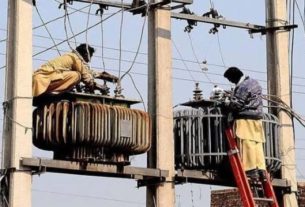ISLAMABAD: In a joint call to action, Amnesty International, the Charity and Security Network, and Human Rights Watch have urged the Financial Action Task Force (FATF) to press the Indian government to cease its prosecution, intimidation, and harassment of human rights defenders, activists, and non-profit organisations under the guise of countering terrorist financing.
According to a recent report by the global human rights watchdog, FATF members are scheduled to commence their fourth periodic review of India’s efforts to combat illicit funding on November 6.
The report reveals that Indian authorities have been leveraging FATF’s recommendations as part of a concerted effort to curtail civic space and suppress the fundamental rights of freedom of expression, association, and peaceful assembly.
The Indian government’s actions have been particularly directed at human rights groups and activists dedicated to advocating for the rights of the most socially and economically marginalised segments of the population.
This joint appeal underscores growing international concern about the restrictions on civil liberties and the targeting of those working to safeguard human rights in India, and it calls upon the FATF to play a role in addressing these critical issues during its review.
“Draconian laws introduced or adapted to this end include the Foreign Contribution (Regulation) Act (FCRA), the Unlawful Activities (Prevention) Act (UAPA), and the Prevention of Money Laundering Act (PMLA). Their actions have flouted both FATF’s standards and international human rights law,” it said.
“The Indian authorities have weaponised laws to crack down on the human rights work by HRDs, activists and non-profit organisations in the country,” said Aakar Patel, chair of board at Amnesty International India.
They were using bogus foreign funding and terrorism charges to target, intimidate, harass and silence critics, in clear violation of FATF standards, he added.
The Indian government also enacted the 2002 Prevention of Money Laundering Act (PMLA) to satisfy membership conditions set by the FATF.
It also added that authorities used the law to attack, intimidate and harass human rights defenders, activists and non-profit organisations by supplementing the charges under FCRA, seizing their properties, and burdening them with stringent bail conditions.
“Amnesty International India has been subject to action under the PMLA through the freezing of its bank accounts in September 2020, putting its work on hold for the past three years, without funds to even secure effective legal representation,” it added.
Meenakshi Ganguly, Deputy Asia Director at Human Rights Watch said, “India’s three laws together have created a dangerous arsenal with debilitating consequences for civil society and human rights activists.”
The FATF should not allow the Indian government to exploit the organisation’s recommendations for its political purposes – to silence all forms of dissent, she stressed.
Amnesty International further said that since the Bharatiya Janata Party (BJP) came to power in 2014, the authorities have used overbroad provisions in domestic law to silence critics and shut down their operations, including by cancelling their foreign funding licenses and prosecuting them using counterterrorism law and financial regulations.
The Foreign Contribution (Regulation) Act, first enacted in 1976, was aimed at preventing and regulating foreign interference in Indian politics.
However, in 2010, the government repurposed the legislation with a greater focus on non-profit organisations, while relaxing foreign funding oversight for political parties.
In the last 10 years, the authorities have used this law to cancel the licenses of over 20,600 non-profit organisations, including 6,000 in 2022, blocking their access to foreign funding.
Indian authorities have also frequently used the Unlawful Activities (Prevention) Act (UAPA), India’s primary counterterrorism law, to arbitrarily arrest and detain human rights defenders and activists, it said.
The law was introduced as a reform to the draconian Prevention of Terrorism Act in 2004, but the government amended it in 2008, 2012 and 2019 to include many problematic provisions of the Prevention of Terrorism Act.
The counterterrorism funding provisions of the Unlawful Activities (Prevention) Act have been misused against several student activists who had organized protests against the Citizenship Amendment Act.
The counterterrorism financing and other provisions have also been misused to detain Khurram Parvez, a prominent Kashmiri human rights activist who is a programme coordinator of the Jammu Kashmir Coalition of Civil Society, and Irfan Mehraj, a journalist associated with the coalition, the report said.
The delay in filing charges and several acquittals in these cases showed that the government was using the counterterrorism law to keep critics locked up for years and use the judicial process itself as a tool to persecute and punish government critics.__Tribune.com





